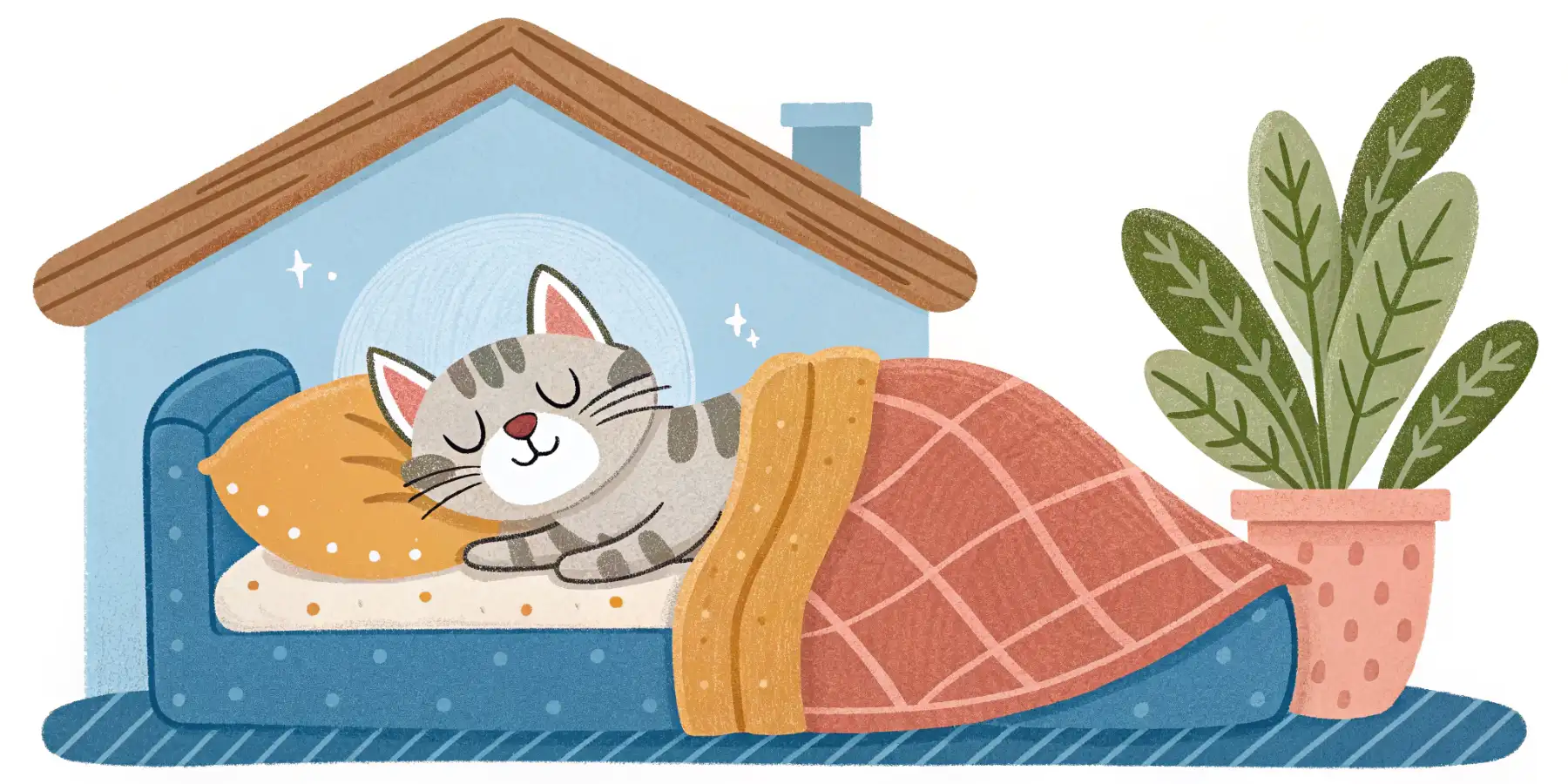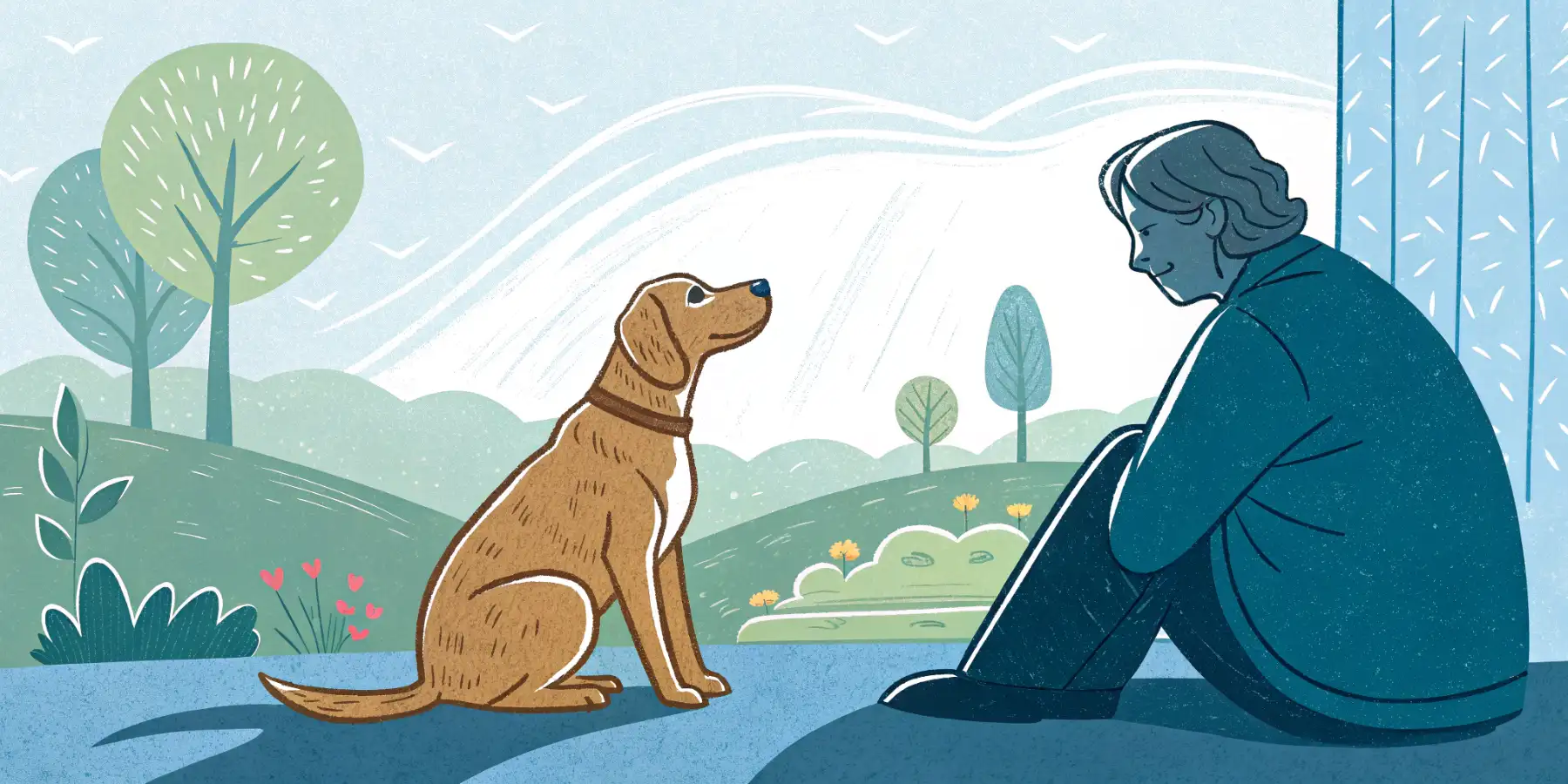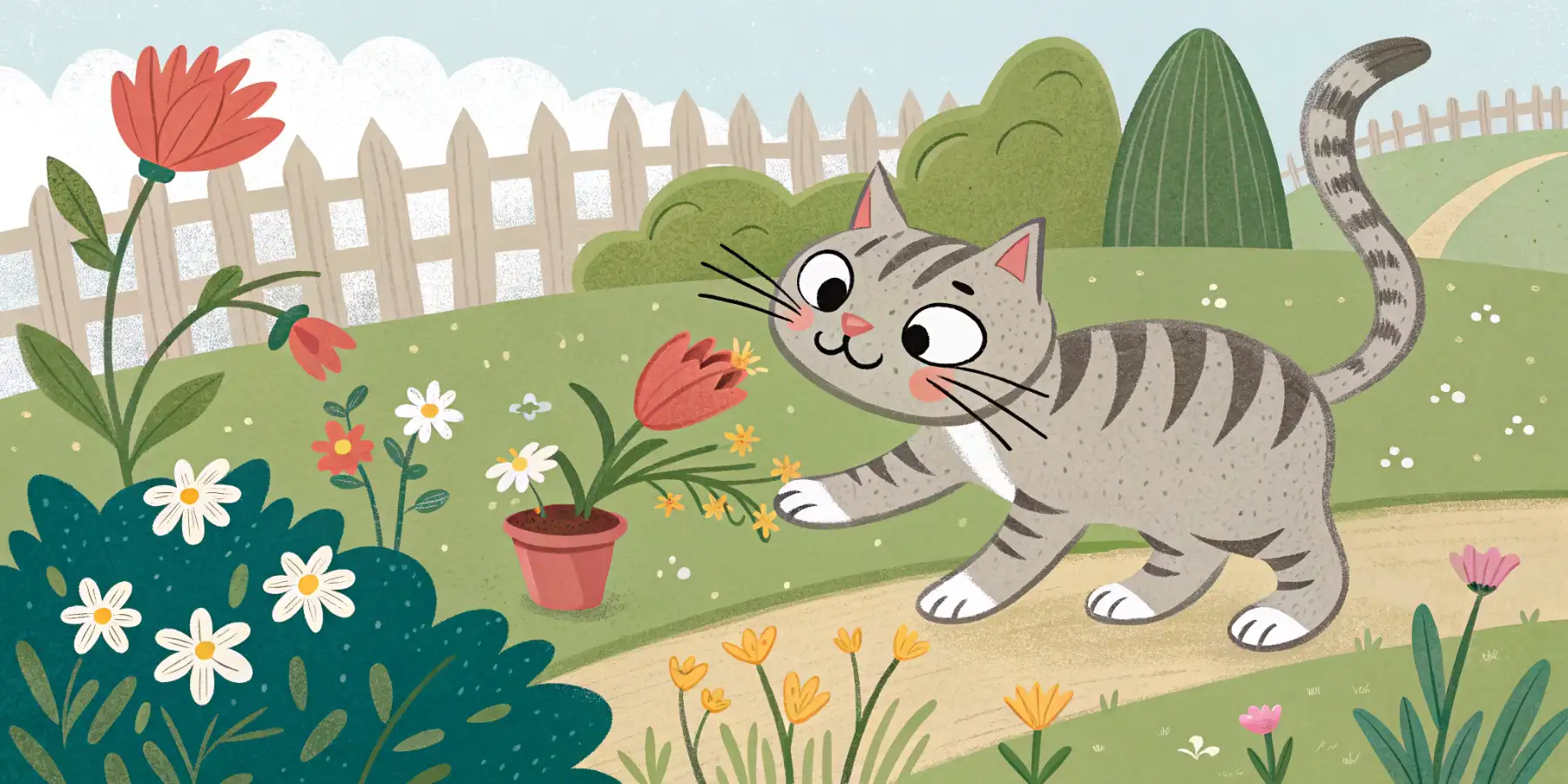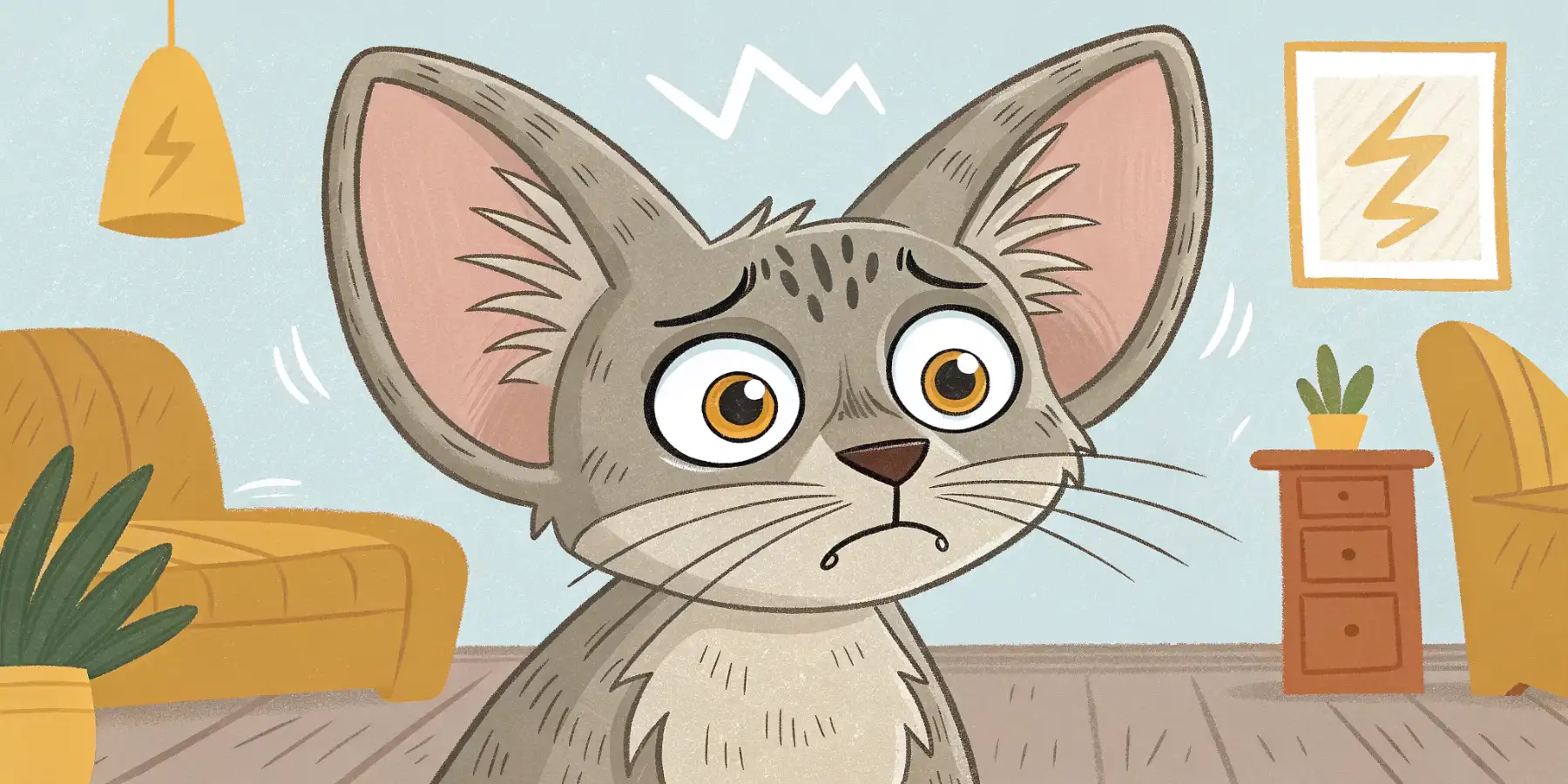
Senior Cat Senses: Vision & Hearing Loss Help
Senior cat losing sight or hearing? Learn how to help your aging cat thrive with vision & hearing loss. Read more!
Understanding Sensory Decline: Vision and Hearing Loss in Older Cats
As our feline companions gracefully age, they often experience changes that can impact their quality of life. Similar to humans, cats can experience a decline in their senses, specifically vision and hearing. Understanding these changes, and knowing how to adapt to your cat’s evolving needs, is crucial for ensuring their comfort and well-being in their golden years. Many cat owners are unaware of the subtle signs of age-related hearing loss in cats and progressive vision impairment in senior cats, so let’s dive in!
Recognizing Vision Loss in Senior Cats
It’s easy to assume that a cat bumping into furniture is just being clumsy, but it could be a sign of deteriorating eyesight. Unlike dogs, who are heavily reliant on their sense of smell, cats utilize their keen vision for hunting, navigation, and social interaction. Detecting vision loss early can help you make necessary adjustments to your cat’s environment and prevent potential accidents.
Some common signs of vision loss in older cats include:
- Hesitation in unfamiliar environments: Does your cat seem more cautious or reluctant to explore new spaces?
- Bumping into objects: This is often a tell-tale sign, especially in dimly lit areas.
- Difficulty locating food or water bowls: Your cat might struggle to find their essentials, especially if they’ve been moved.
- Changes in pupil size or appearance: Cloudy eyes or uneven pupil sizes can indicate underlying eye conditions.
- Increased startle response: A sudden movement or noise might cause your cat to jump more easily if they’re not seeing as well.
- Avoiding jumping or climbing: They may no longer feel confident navigating vertical spaces.
- Dilated Pupils: Pupils that are wider than normal, even in bright light, can be an indication of vision problems.
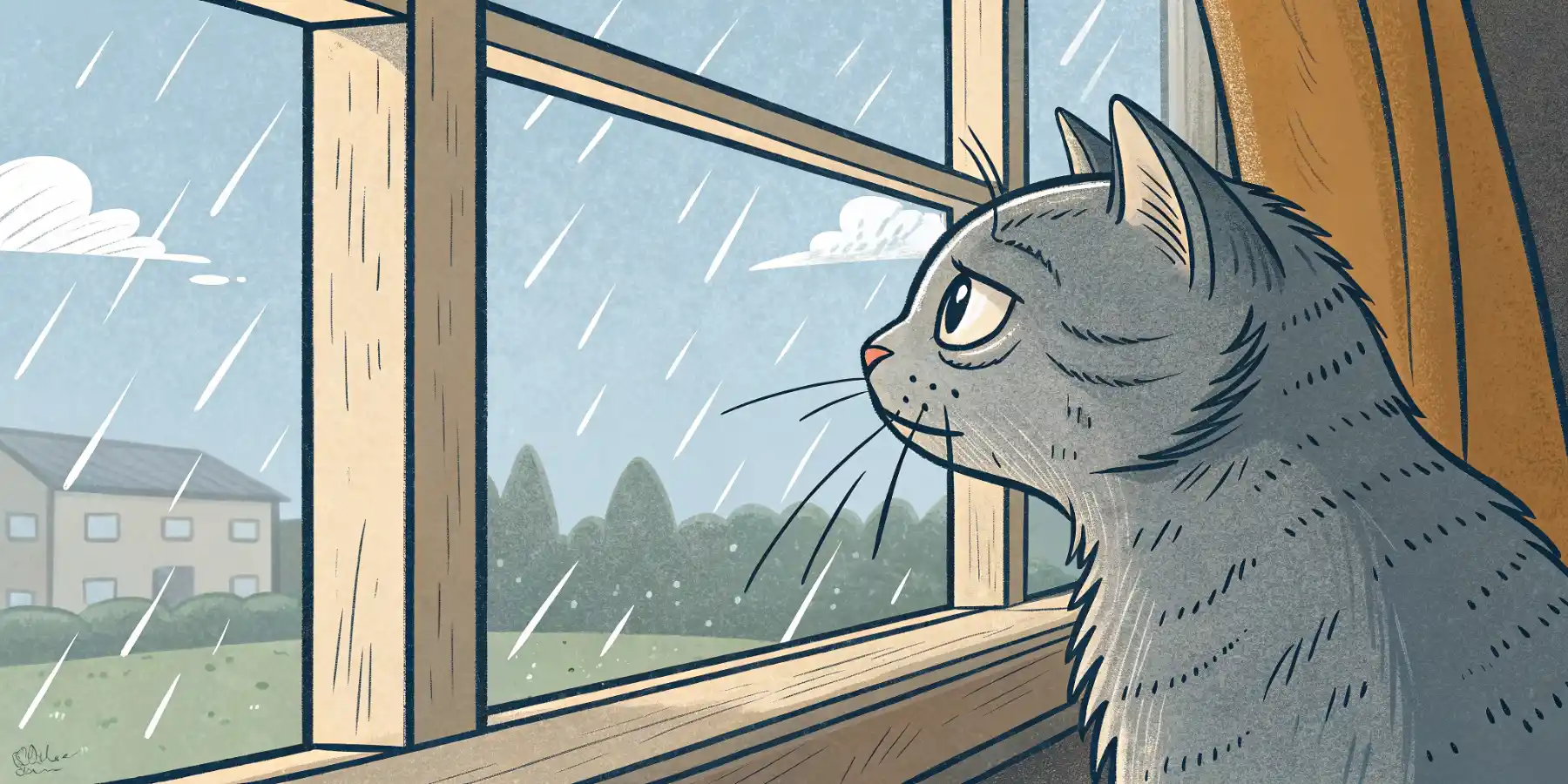 Image: A senior cat with cloudy eyes, a common sign of age-related vision problems in older felines. Recognizing these visual changes is key to addressing age-related vision problems in senior cats.
Image: A senior cat with cloudy eyes, a common sign of age-related vision problems in older felines. Recognizing these visual changes is key to addressing age-related vision problems in senior cats.
It’s important to note that vision loss can be gradual, making it challenging to detect in its early stages. If you notice any of these signs, a visit to your veterinarian is crucial. They can perform a thorough eye exam to determine the underlying cause and recommend appropriate treatment options. Common causes can range from cataracts to glaucoma, or even high blood pressure. In my experience, early detection and management of eye conditions can significantly improve a cat’s quality of life.
Dealing with Hearing Loss in Aging Cats
Hearing loss is another common sensory decline experienced by older cats. While not as outwardly obvious as vision loss, it can significantly impact a cat’s ability to communicate, navigate, and feel secure. Age-related deafness in cats can develop gradually, making it difficult to notice initially.
Here are some signs that your cat might be experiencing hearing loss:
- Decreased response to sounds: They may not react to your voice, the sound of a treat bag, or other familiar noises.
- Sleeping more soundly: A deaf cat is less likely to be awakened by everyday sounds.
- Increased vocalization: Some cats may meow more frequently or loudly, as they can’t hear themselves as well. This is especially true with excessive meowing due to feline cognitive dysfunction.
- Being easily startled: A sudden touch might startle them, as they didn’t hear you approaching.
- Changes in behavior: They might become more withdrawn, anxious, or irritable. .*
While there’s often no cure for age-related hearing loss, there are many ways to adapt and make your cat’s life easier.
Adapting Your Home for Sensory-Impaired Cats
Whether your cat is experiencing vision loss, hearing loss, or both, making simple changes to your home environment can significantly improve their comfort and safety.
Here are some practical tips:
- Maintain a consistent environment: Avoid rearranging furniture or moving their food and water bowls. This helps visually impaired cats navigate more easily.
- Use ramps or steps: Help your cat access their favorite spots, such as the couch or bed, without having to jump.
- Ensure good lighting: Adequate lighting can help cats with impaired vision see better. Consider installing nightlights in hallways and bedrooms.
- Communicate through touch and vibration: Instead of relying on your voice, use gentle touch to get your cat’s attention. You can also stomp lightly on the floor to create vibrations they can feel.
- Consider using pheromone diffusers: These can help reduce anxiety and stress in cats with sensory decline.
- Keep them indoors: As cats age, they are more prone to accidents outside and it is especially dangerous for them if they have a sensory impairment.
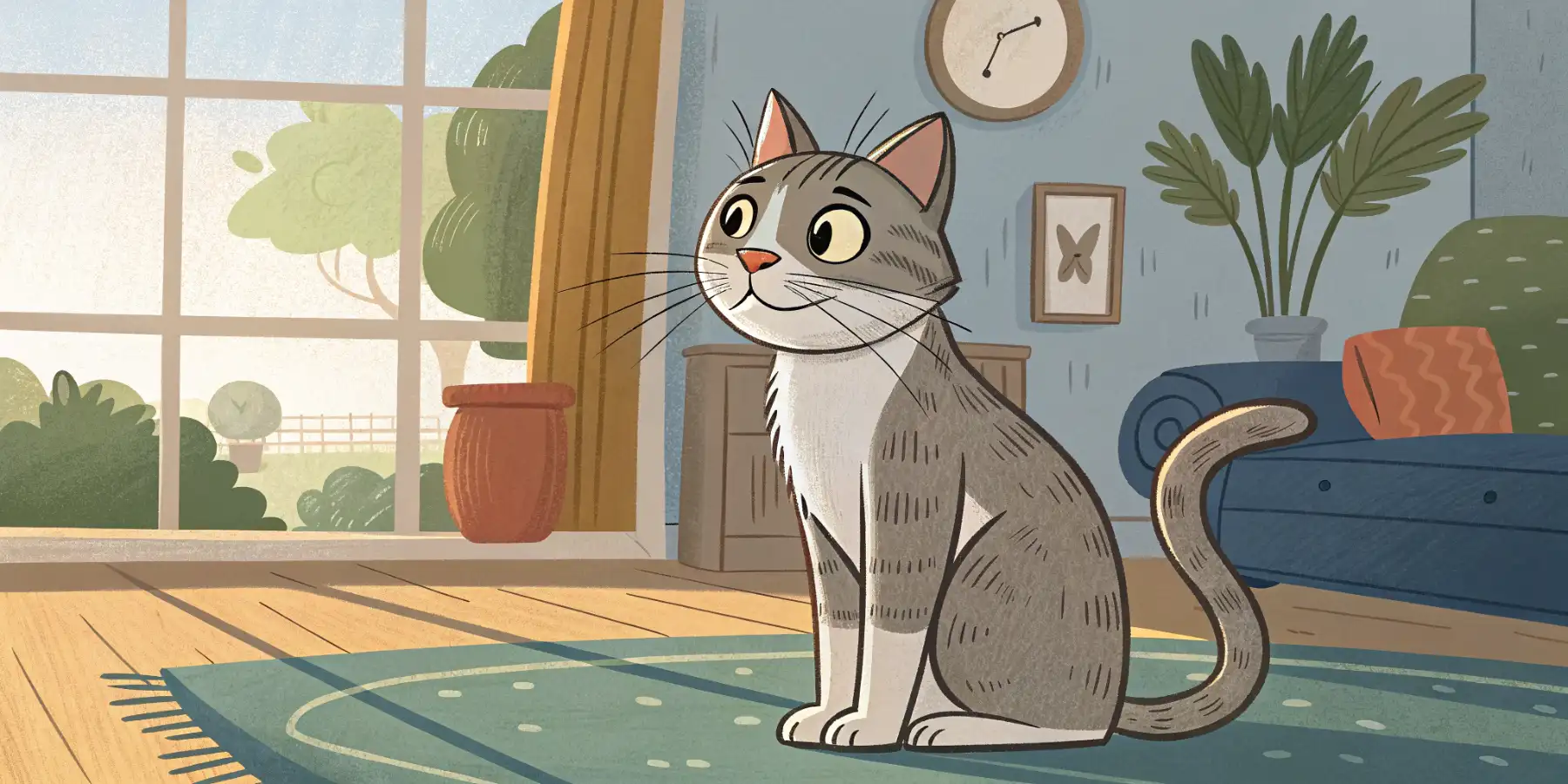 Image: An example of a cat-friendly home environment designed to accommodate a senior cat with vision loss. Clear pathways and consistent furniture placement are key.
Image: An example of a cat-friendly home environment designed to accommodate a senior cat with vision loss. Clear pathways and consistent furniture placement are key.
I believe that creating a predictable and safe environment is one of the most important things you can do for a senior cat with sensory decline. Predictability reduces anxiety and allows them to maintain their independence and quality of life.
Communicating with a Sensory-Impaired Cat
Adapting how you communicate with your cat is essential. For cats with hearing loss, hand signals and visual cues can be very effective. For cats with vision loss, use your voice to announce your presence and avoid startling them. Always approach them gently and speak their name before petting them.
When to Seek Veterinary Care
Regular veterinary checkups are crucial for senior cats. Your veterinarian can monitor their vision and hearing, identify any underlying medical conditions, and recommend appropriate treatment options. Don’t hesitate to discuss any concerns you have about your cat’s sensory abilities with your vet.
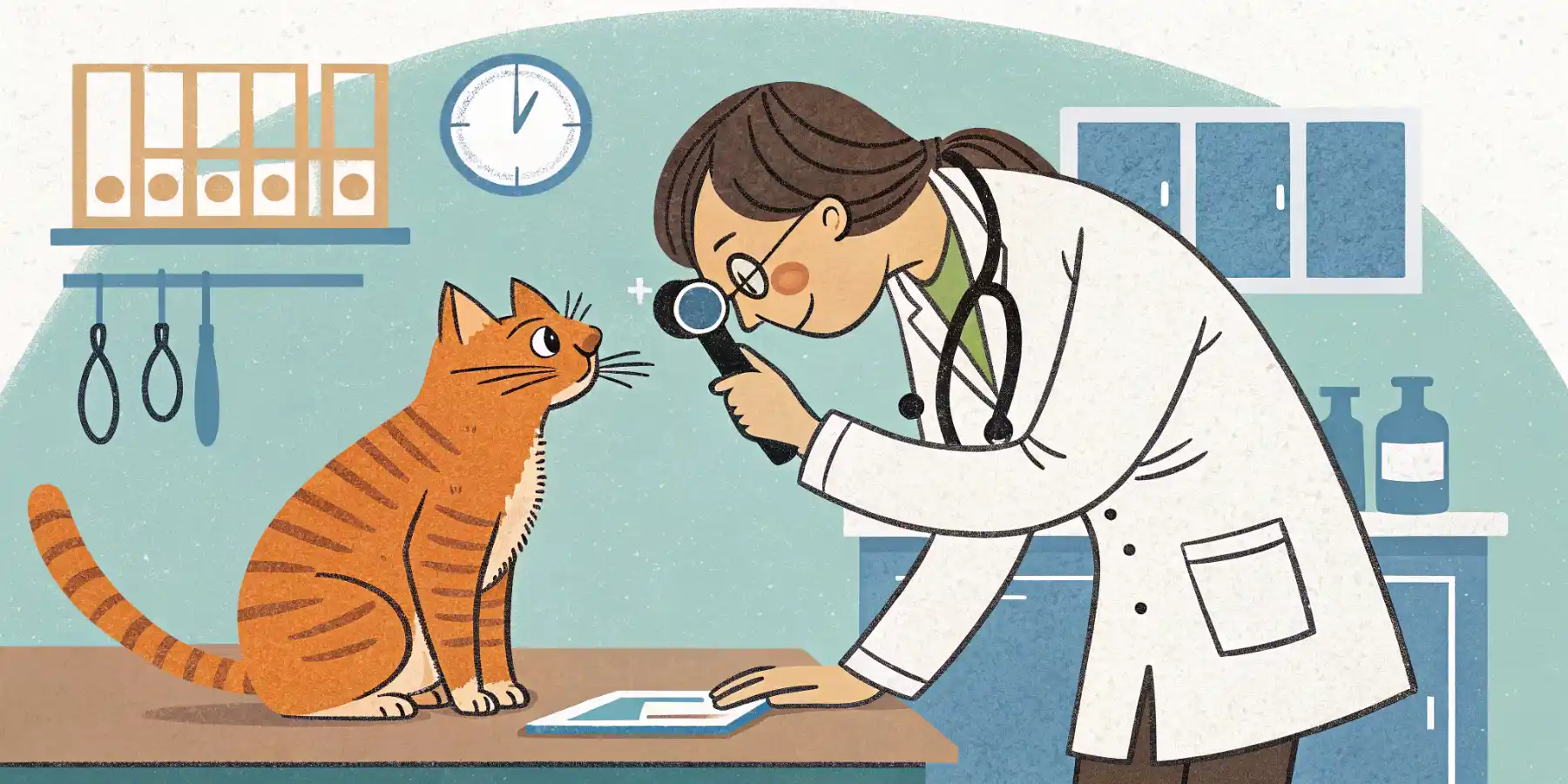 Image: A veterinarian performing an eye exam on a senior cat. Regular checkups are essential for detecting and managing age-related health issues.
Image: A veterinarian performing an eye exam on a senior cat. Regular checkups are essential for detecting and managing age-related health issues.
Understanding and addressing sensory decline in older cats is a vital part of providing them with the best possible care in their senior years. By recognizing the signs, adapting their environment, and adjusting your communication style, you can help your feline companion live a comfortable, happy, and fulfilling life, even with diminished vision or hearing. Remember, with a little patience and understanding, you can make a big difference in your cat’s golden years.
